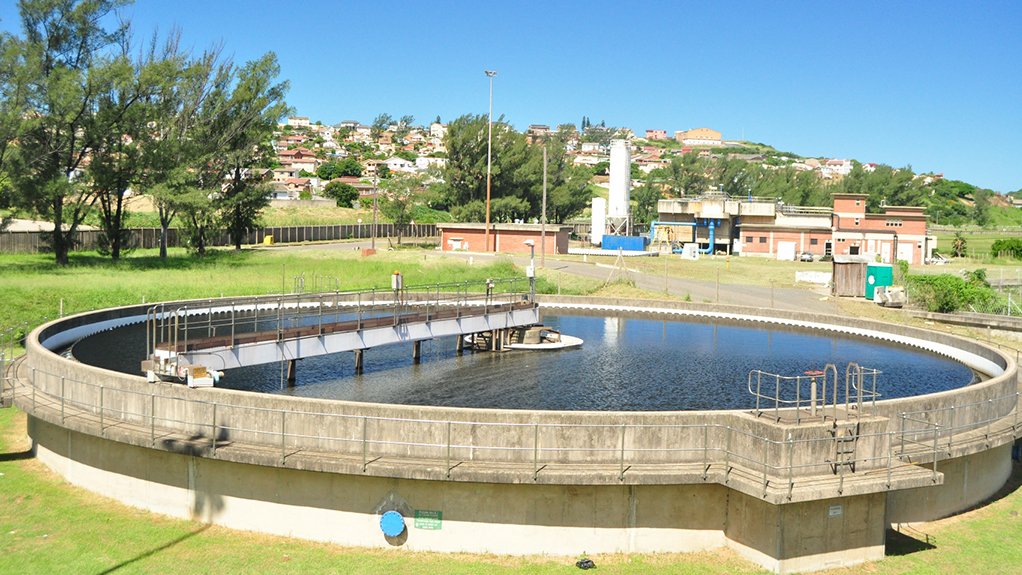Private-public partnerships (PPPs) can help improve South Africa’s water infrastructure and create opportunities for the introduction of technological advancements in the sector, says water solutions company Veolia South Africa GM Chris Braybrooke.
The South African water infrastructure is in a poor state owing to little to no investment in the past decade. The poor infrastructure state attests to a lack of expansion to alleviate the strain population growth places on the system and a lack of required skills to operate potable and wastewater treatment plants across the country.
South Africa’s current constricting legislation on the creation of PPPs (the Public Finance Management Act, 1999) has also amplified problems related to water infrastructure locally.
“Municipalities have to first apply to the National Treasury, under the Public Finance Management act. The process takes a very long time, and special purpose vehicles do not want to wait such length of times to implement. There is a need to adopt legislation to allow the formation of PPPs in such a way that it accelerates the construction and operation of new infrastructure,” notes Braybrooke.
PPPs would assist with many of the problems government and municipalities face in operating, maintaining and improving water infrastructure.
He points out that the majority of South Africa’s water infrastructure is based on old technology which has deteriorated owing to low to no maintenance over many years. Such operations in a plant do not stimulate good practices and results in no upskilling of employees.
However, in operations where the private sector is involved, there are stricter training programmes put in place for operators. Private companies are accountable to their stakeholders and so they prioritise good practices that deliver good performance, says Braybrooke.
Private companies can also introduce digital platforms and technologies in the country’s water infrastructure systems.
Digital Platforms
Since the beginning of the Covid-19 pandemic, Veolia has seen an acceleration of digital platforms for plant operations and optimisation based on a remote data management basis. The digital tools have been designed based on many years of experience from companies in the sector such as Veolia.
The company’s best practice principles are bundled in the tool to assist water treatment plant stakeholders extract the maximum performance along with the lowest operating expense out of facilities.
Veolia’s Hubgrade tool is a cloud-based service that receives operational data from potable and wastewater treatment plants. Based on the date, the tool calculates set points for equipment, which regulates the operation of a plant.
The Hubgrade Performance Plant module optimises the process and flows that occur at the plant and in the network. Through optimisation, it can minimise electricity costs, the chemical dosing and/or increase the hydraulic and biological capacity as well as energy production. The module also ensures stable operation and compliance with quality objectives for the water systems.
“The module collects measurements that come from sensors that measure control points such as dissolved oxygen, ammonium concentrations and flows among others. Activators are typically blowers, mixers, pumps, weirs and dosage equipment. The sensors and activators are ultimately controlled by an onsite programmable logical controller network,” explains Braybrooke.
Through using such platforms and modules, there are no human errors and the impacts associated with it. Additionally, stored historical plant operational data can assist in real time management of operational performance owing to the input from the combined experience of companies in the sector.
The private sector has expertise, experience and technology that can vastly improve the country’s water infrastructure. An example of the positive impact of such partnerships is Veolia’s 15-year operation and maintenance agreement with the Overstrand municipality in the Western Cape.
The Overstrand municipality has five dams that service 11 towns within the municipality. Within the municipal scope, there are nine potable water treatment plants, and five wastewater treatment facilities.
“Veolia technologies being employed under the agreement include reverse osmosis, bioremediation and ultrafiltration. By going the outsourcing route, Overstrand has made substantial budget savings, with the added benefit of skills transfer opportunities for municipal personnel. “The availability of these different operations has also increased as a result of key performance indicators in place with the municipality,” says Braybrooke.
Veolia has also demonstrated the effectiveness and value of waste to resource through their built and operated Durban Water Recycling Project (DWR) which recycles 47.5 M𝓵/d of municipal sewage to a near potable standard for direct reuse by South African Petroleum Refineries and packaging and paper group Mondi Paper.
In addition to economic, social and environmental benefits, the DWR project is a model of success for PPPs in Africa’s water and sanitation sector. This can be taken as an encouraging sign for the government and municipalities to embrace partnership with the private sector.
Edited by: Zandile Mavuso
Creamer Media Senior Deputy Editor: Features
EMAIL THIS ARTICLE SAVE THIS ARTICLE
ARTICLE ENQUIRY
To subscribe email subscriptions@creamermedia.co.za or click here
To advertise email advertising@creamermedia.co.za or click here













